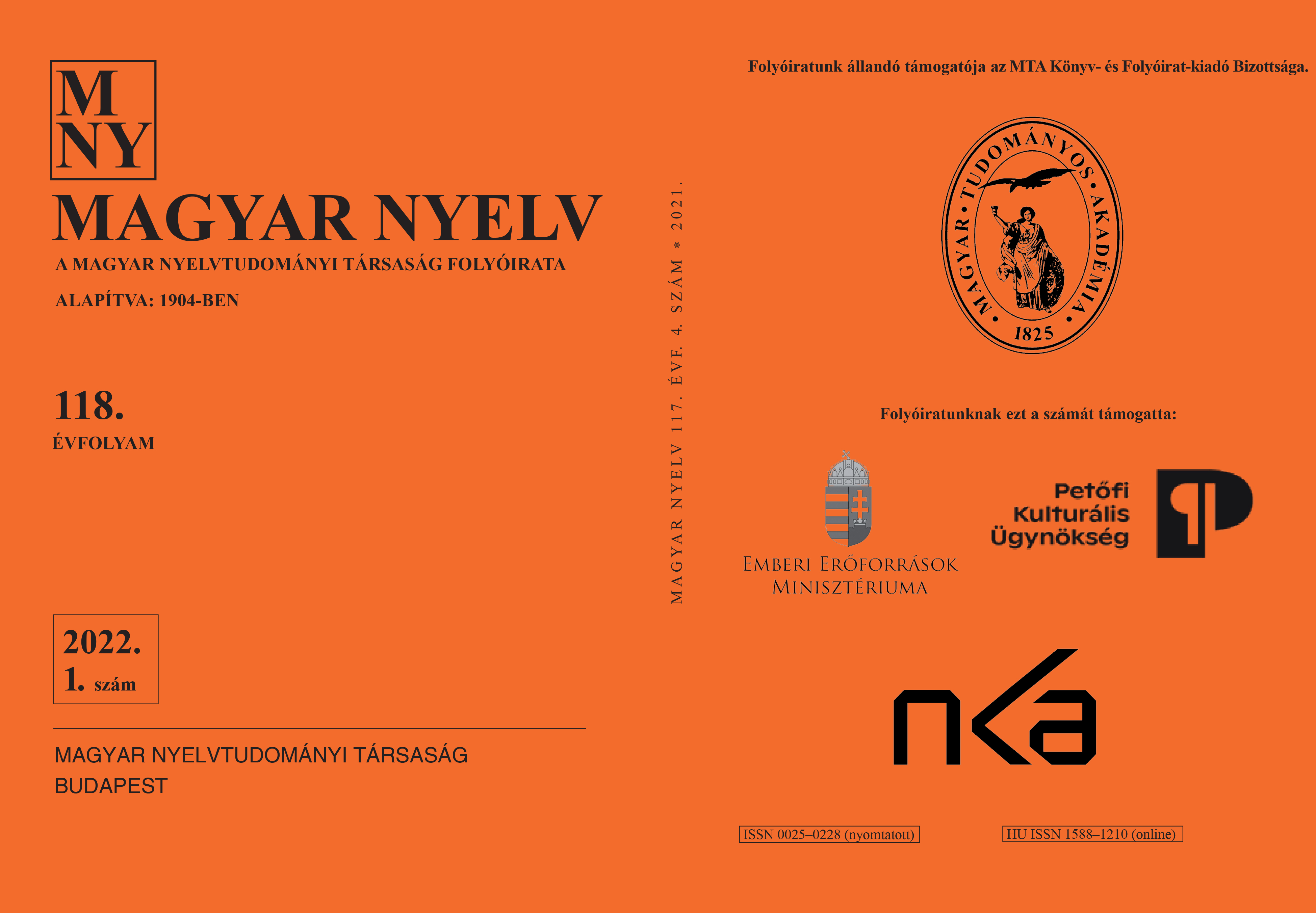Loránd Benkő and the Etymologisches Wörterbuch des Ungarischen
DOI:
https://doi.org/10.18349/MagyarNyelv.2022.1.44Keywords:
lexicography, lemma stock, protolanguage heritage, fictive stems, etymological backgroundAbstract
Loránd Benkő’s etymological work can be divided into two parts: on the one hand, his etymologies published in articles, studies and monographs, and on the other hand, his work in etymological dictionaries as editor-in-chief. One of the outstanding achievements of the latter is the Historical-Etymological Dictionary of Hungarian (TESz.), published in three volumes between 1967 and 1976, supplemented by the fourth, Index volume in 1984. This work was a success both in Hungarian and international professional circles, but there was a need for a more concise etymological dictionary, written in an international language. As a result, a dictionary was created with German as its metalanguage: the Etymologisches Wörterbuch des Ungarischen (EWUng.; Vols 1–2: 1993–1995. Akadémiai Kiadó, Budapest). This article compares TESz. and EWUng. in some important respects, referring to the novelties of the latter dictionary. These include: differences in the lemma stocks; restructuring of the entries; standardization of introductory sentences in etymological sections; a more consistent explanation of some elements of the protolanguage heritage; systematic application of the fictive stem as a morphological category in etymology; and providing a broader etymological background for the foreign elements. EWUng. is at the forefront of etymological dictionaries even by European standards, and Loránd Benkő played a key role in creating it.
Downloads
Published
Issue
Section
License
Magyar Nyelv is a Diamond Open Access periodical. Documents can be freely downloaded and duplicated in an electronic format, and can be used unchanged and with due reference to the original source. Such use must not serve commercial purposes. In the case of any form of dissemination and use, Hungarian Copyright Act LXXVI/1999 and related laws are to be observed. The electronic version of the journal is subject to the regulations of CC BY-NC-ND (Creative Commons – Attribution-NonCommercial-NoDerivatives).
The journal permits its authors, at no cost and without any temporal limitation, to make pre-print copies of their manuscripts publicly available via email or in their own homepage or that of their institution, or in either closed or free-for-all repositories of their institutions/universities, or other non-profit websites, in the form accepted by the journal editor for publication and even containing amendments on the basis of reviewers’ comments. When the authors publicize their papers in this manner, they have to warn their readers that the manuscript at hand is not the final published version of the work. Once the paper has been published in a printed or online form, the authors are allowed (and advised) to use that (post-print) version for the above purposes. In that case, they have to indicate the exact location and other data of the journal publication. The authors retain the copyright of their papers; however, in the case of an occasional secondary publication, the bibliographical data of the first publication have to be included.



